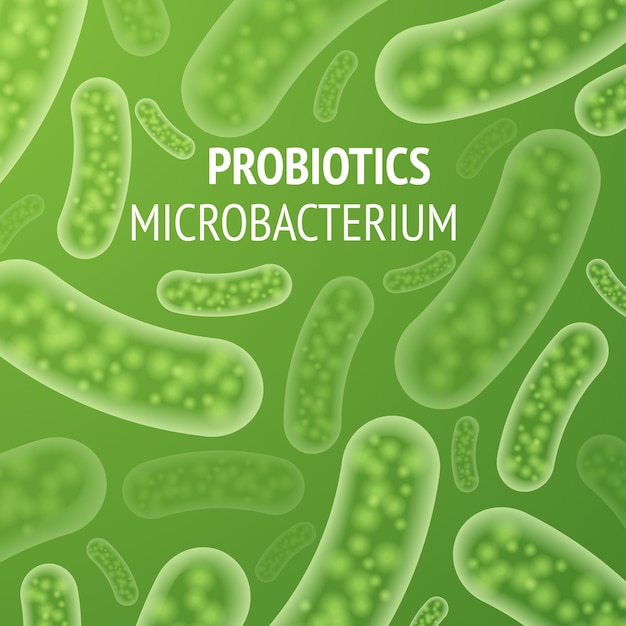
Probiotics: Enhancing Your Health from the Inside Out
Probiotics have a mutually beneficial relationship with the human body. They help detoxify substances, digest fiber, and balance the gut. They also produce B vitamins and serotonin. When you consume probiotics through supplements or foods, they foster a healthy microbiome with diverse gut flora.
When your body is colonized by health-promoting probiotics, your physical, mental, and emotional well-being are balanced. This can lead to improved immune function, mental clarity, and superior digestion. For many, the chain reaction of health benefits maintains overall health and reduces the likelihood of developing digestive and mood-related issues.
Probiotic Quick Facts
What Are They: Living beneficial bacteria and yeasts
Main Benefit: Gut health
Food Sources: Yogurt, sauerkraut, kombucha, kefir, kimchee
What Are Probiotics?
Probiotics are living bacteria and yeasts beneficial to your health, particularly your digestive system. Unlike harmful bacteria, probiotics have a symbiotic relationship with your body. Your digestive system, skin, mouth, and other orifices like nostrils already harbor hundreds of probiotic microbes. The gastrointestinal tract alone contains over 500 different bacterial species. Sometimes, this ecosystem becomes unbalanced. Maintaining a balanced gut microbiota is crucial for overall health.
Top Health Benefits of Probiotics
Probiotics offer numerous health benefits, including balancing the gut, improving digestion, and alleviating the side effects of antibiotics. Key benefits include:
– Enhanced immune response
– Mitigating the adverse effects of antibiotics, including occasional diarrhea
– Calming colon irritation
– Healthier skin and improved complexion
– Better digestion
– Therapeutic effects for upper respiratory health
– Improved lactose tolerance
– Promoting healthy yeast balance
– Supporting vaginal health
– Increased nutrient absorption
– Encouraging normal bowel movements
– Promoting oral health and reducing bad breath (halitosis)
– Enhanced synthesis of B vitamins
– Improved calcium absorption
– Supporting vitamin K production
Probiotic Research
Researchers regularly publish new findings about the benefits of probiotics. Some recent discoveries include:
– Improved bioavailability of essential nutrients like zinc, iron, phosphorus, B vitamins, calcium, copper, and magnesium
– Normalized bowel function in patients with digestive discomfort through Bacillus infantis
– Reduced rates of diarrhea and diaper rash in babies consuming infant probiotics
– Reduced lactose intolerance symptoms through active cultures like Acidophilus
– Decreased constipation in the elderly by regulating intestinal transit time
– Reduced conversion of chemical compounds in feces into carcinogens through promoting healthy bacteria in the colon
– Lower incidence of upper respiratory tract infections
– Link between mental health and probiotics, including serotonin production in a healthy gut
– Enhanced overall immunity through regulating proteins and antibodies
– Potential promotion of heart health
Who Should Take Probiotics?
Almost everyone can benefit from probiotics, especially those exposed to a toxic environment, consuming processed foods, or experiencing high stress. Antibiotics can disrupt beneficial bacteria in your digestive system, so anyone on antibiotics should consider probiotics to re-establish balanced gut flora. Other factors that can disrupt gut health include frequent fevers, colds, and Candida overgrowth.
Signs You May Need Probiotics
Disruptions in gut bacteria by harmful organisms can manifest as fatigue, mood swings, acne, and digestive symptoms like bloating and constipation. If you experience any of these symptoms, you might benefit from probiotics.
History of Probiotics
Probiotics are present in many foods and animals worldwide. The concept of probiotics was introduced in the 20th century by Nobel laureate Elie Metchnikoff. Despite Metchnikoff’s work, probiotic supplements did not gain public awareness until the 1980s. Today, more than ever, people recognize the benefits of probiotics, which is why they are commonly discussed in the news, grocery stores, and even doctor’s offices.
How Probiotics Work
Probiotics support your health by outcompeting harmful bacteria for food and resources, preventing undesirable bacteria from establishing stable colonies. Some strains influence gut pH levels, creating a favorable digestive environment. Others help metabolize foods that would otherwise be poorly digested, allowing better absorption of vitamins and nutrients. These factors promote a balanced microbiome, stimulating immune responses and contributing to overall physical and mental health.
Common Probiotic Strains
Research continues to identify different probiotic organisms and their benefits. Although scientific names are rarely used outside ingredient labels or textbooks, probiotics generally fall into two major groups: Lactobacillus and Bifidobacterium.
Lactobacillus
Lactobacillus strains are essential for a healthy microbiota, creating lactic acid by metabolizing sugars. This acidity deters harmful organisms and helps detoxify the digestive system. Cultured or fermented foods like yogurt, pickles, beer, and sourdough bread often use Lactobacillus strains. These strains are abbreviated as L. on labels.
Bifidobacterium
Bifidobacterium strains are found in the mouth, throughout the digestive tract, and make up the largest proportion of colon flora. They play a vital role in carbohydrate breakdown and utilization. Foods containing Bifidobacterium include infant formulas, kimchee, and certain cheeses. These strains are abbreviated as B. on labels.
The Best Probiotic Strains for the Gut
Global Healing has identified top probiotic strains for gut health, including:
– Bacillus coagulans
– Bacillus subtilis
– Lactobacillus paracasei
– Saccharomyces boulardii
– Lactococcus lactis
– Lactobacillus plantarum
– Lactobacillus acidophilus
– Lactobacillus casei
– Streptococcus thermophilus
– Bifidobacterium animalis lactis
– Lactobacillus brevis
– Lactobacillus gasseri
– Lactobacillus bulgaricus
– Lactobacillus delbrueckii
– Bacillus coagulans MTCC 5856
– Lactobacillus fermentum
– Lactobacillus reuteri
– Bifidobacterium longum
– Bifidobacterium bifidum
– Lactobacillus rhamnosus
– Lactobacillus salivarius
– Bifidobacterium breve
– Bifidobacterium lactis
– Bacillus clausii
– Pediococcus acidilactici
Probiotic-Rich Foods
A diverse diet rich in fermented foods and drinks, pickled foods, and cultured dairy products promotes probiotic growth. These foods are often absent from a traditional Western diet. Adding the following vegan foods can diversify your gut flora:
– Nut Milk Yogurt
– Kombucha
– Coconut Kefir
– Sauerkraut
– Kimchee
– Ginger Beer
– Sour Pickles
Choosing the Right Probiotic Supplement
A daily probiotic can help maintain a healthy gut, counteracting the negative effects of stress, sickness, poor diet, and environmental factors. When choosing a probiotic, consider several important factors. Here are the top 10 things to know before buying probiotics.



